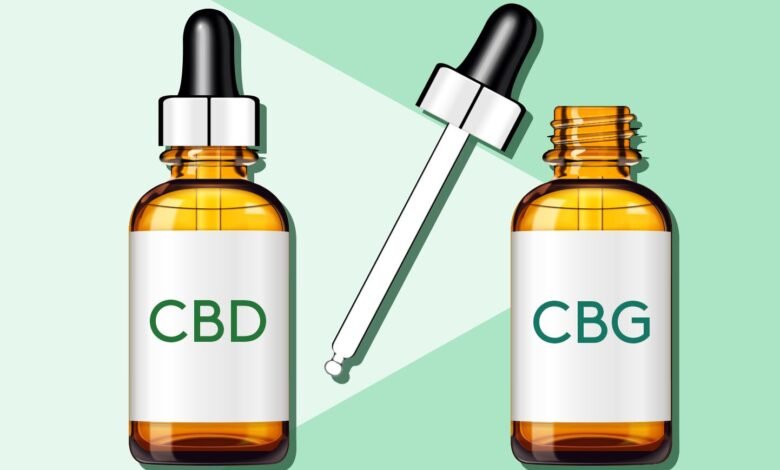CBG vs. CBD: Understanding the Differences and Benefits of Two Popular Cannabinoids

What are CBD and CBG? CBD is one of the most well-known and most frequently studied cannabinoids. It’s not psychoactive. That is, it does not grow them and is usually extracted from hemp. CBD mainly interacts with the body’s endocannabinoid system (ECS) to regulate a variety of functions, including mood, sleep, pain, and immune responses.
CBG, on the other hand, is often referred to as “the mother of all cannabinoids.” This is a pioneer of other cannabinoids such as THC and CBD. In the early stages of cannabis plant growth, CBG is available in large quantities, but is converted to other connections when the plant matures. As a result, CBG is usually found at low concentrations in tire plants, making it more difficult to extract anything that can become more expensive.
How do you work?
Both CBD and CBG interact with the endocannabinoid system, which interact in a variety of ways.
CBD is a behavior that indirectly affects ECS. Although not strong in cannabinoid receptors (CB1 and CB2), they help regulate the balance of different neurotransmitters and promote homeostasis (balance) within the body. CBG binds directly by CB1 and CB2 receptors. This indicates that it may have a more direct impact on certain physiological processes, particularly those associated with inflammation and neurological functions.
Due to these differences in interactions, CBG and CBD can have unique effects on the body, but are often used for similar purposes.
Potential Benefits of CBD
For many people, CBD has become a supplement that seeks natural relief from a variety of symptoms. Some of the best documented benefits are:
Relieving fear and stress
CBD shows promise in reducing anxiety by affecting serotonin levels in the brain. Pain and inflammation
It is often used for chronic pain and inflammation. It is often a natural alternative to counter pain relief.
Improvements
CBD helps regulate sleep patterns, especially for people with insomnia or fear-related sleep disorders.
Epilepsy and seizures
The active ingredient Epidiolex, approved by the FDA, contains CBD and is used to treat rare forms of epilepsy.
Potential Benefits of CBG
Although CBG studies are still in their early stages, preliminary studies show that there may be some health benefits.
Neuroprotective properties
CBG can support brain health and protect nerve cells. Neurons can be useful in neurodegenerative diseases such as Huntington and Parkinson’s disease.
Anti-inflammatory effect
Studies have shown that CBG can reduce inflammation, especially in the case of inflammatory bowel disease (IBD) and other gastrointestinal disorders. Antibacterial activity
CBG has shown antibacterial effects, particularly on resistant stems such as MRSA.
Appetite stimulation
In contrast to CBD, CBG has been shown to increase appetite, which benefits treatments such as chemotherapy.
Important Differences between CBG and CBD
Functional CBD CBG
Sources derived from hemp or cannabis predecessors of all cannabinoids
Frequency of most hemp strains available at low concentrations
Psychoactive? no
Receptors directly affect CB1/CB2
General applications of anxiety, pain, sleep, attacks of inflammation, brain health, and appetite
Do I need to use CBG or CBD?
The choice of CBD and CBG depends on your specific requirements. If you’re looking for general wellness support, fear relief, or sleep help, CBD might be the better option. CBG may be more effective when dealing with research on indigestion, focus, or neurological health.
Interestingly, many users report that cannabinoid combinations can offer even greater benefits. This is known as the Side Effect. For this reason, products that contain both CBG and CBD are becoming increasingly popular.
Conclusion
Both CBG and CBD offer exciting opportunities in the natural health and well world. While CBD is better known and even more available, CBG quickly acquires the unique benefits and direct effects of the body’s endocannabinoid system.
Since research has evolved, we will likely see more specialized products and formulations using the power of these two cannabinoids. Whether you choose CBD, CBG, or a combination of both, we recommend consulting with your health service provider, especially if you are dealing with medication or chronic conditions.
The future of cannabinoid wellness is promising, with both CBG and CBD being key players in this developing narrative.